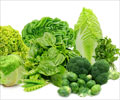Research carried out by the Department of Chemical Engineering makes it possible to remove chrome, a hard metal which can be dangerous for humans.
Research carried out by the Department of Chemical Engineering makes it possible to remove chrome, a hard metal which can be dangerous for humans. The process is based on biosorption, which is a property of certain types of biomass to retain pollutants. It can be used to purify water from painting, tannery or the galvanizing industry, among others.
A question arises whenever olive oil is obtained: what can we do with its agricultural residues, such as olive vegetable water, browse leaves, or the solid waste known as ‘alperujo’? A study carried out by Dr. Germán Tenorio Rivas, a member of the research group “Solids concentration and bioremediation” from the Department of Chemical Engineering of the University of Granada has found an interesting use for the apparently useless olive stones: they eliminate hard metals –chrome, to be precise- by biosorption in sewage water from industries such as painting, tannery or galvanizing industry.Biosorption is a physical and chemical process, which enables certain types of biomass –for example, agricultural residues- to retain the hard metals found in industrial sewage water. The main advantage of this research is that olive stones are used. Germán Tenorio points out: “We don't need to bring it from anywhere else, we already produce it here, and we produce a great amount. It is also clean and cheap”.
The process of biosorption of chrome by olive stones stems from their capacity to retain metallic ions in their surface. As the UGR scientist explains: “This is due to the difference in electrical charges. Olive stones are negatively charged, whereas metal is positively charged. That is the reason why they come together, thanks to ionic attraction”.
The process of biosorption can be a good substitute for other processes such as precipitation which are far more complex and expensive. The aforementioned researcher explains : “Unlike these processes, the use of olive stones as a biosorption mechanism produces no subproducts which are then difficult to deal with, for instance, metal concentrated mud”. Two products are obtained during this process: water free of pollutants and the olive stones with the retained metal. “This metal can be used later”. The olive stones can also be used as biomass to obtain energy, as they are agricultural residues.
The research carried out in the University of Granada means a step forward in the field of the biosorption of metals. It will be the basis for the development of new technologies to make it possible to depollute by removing metals in water residues.
Source-Eurekalert
SRM/L







